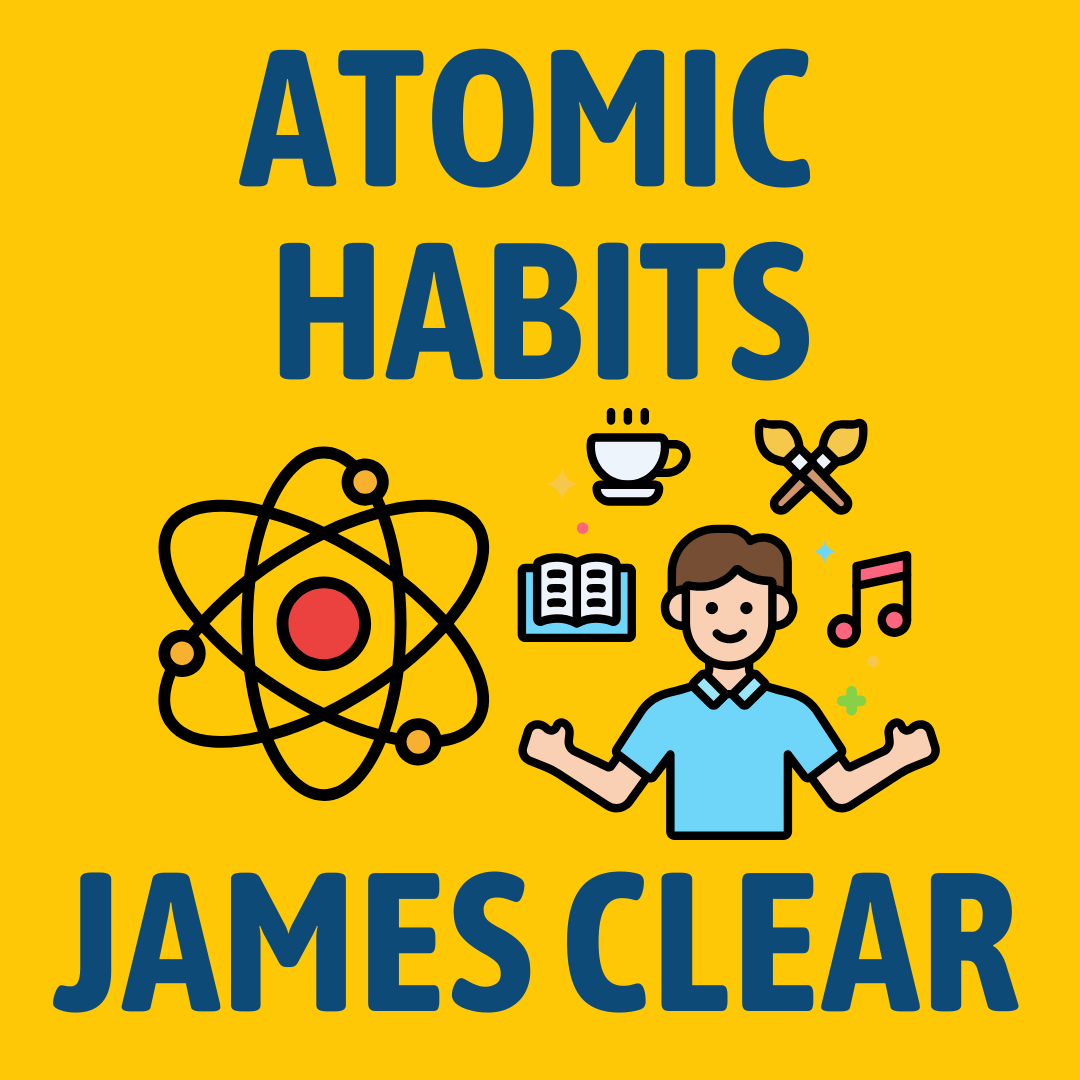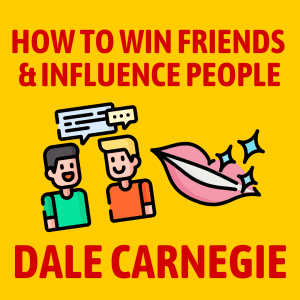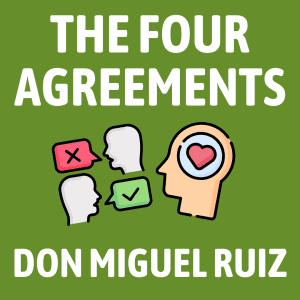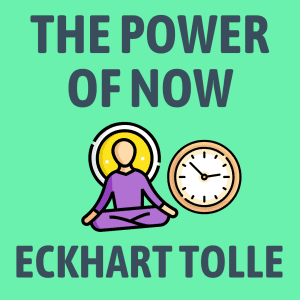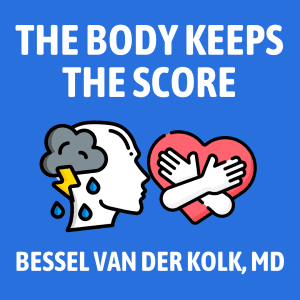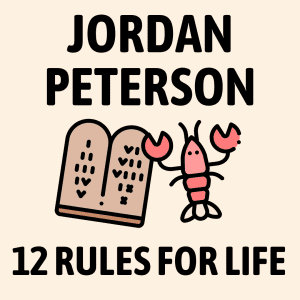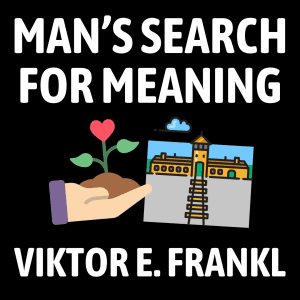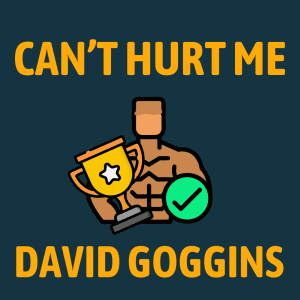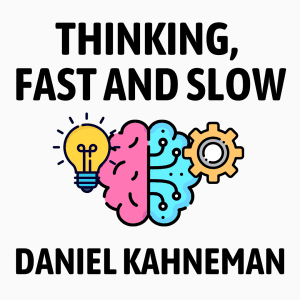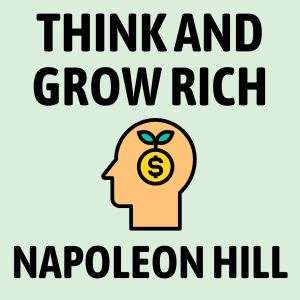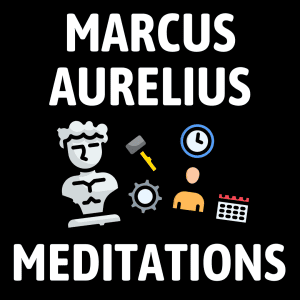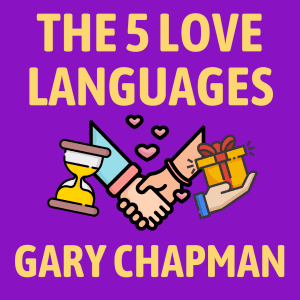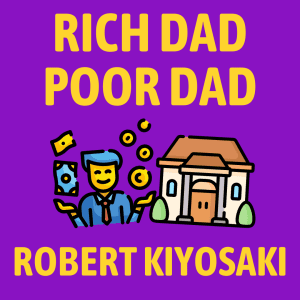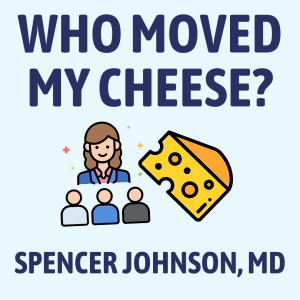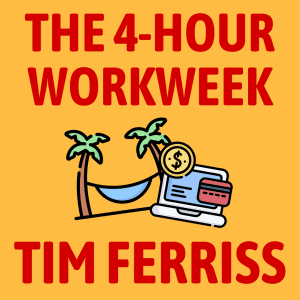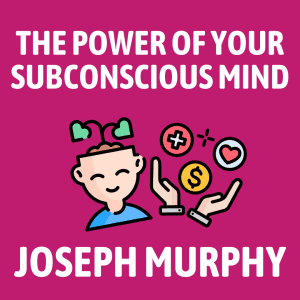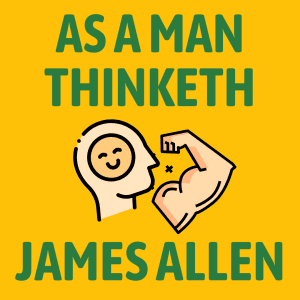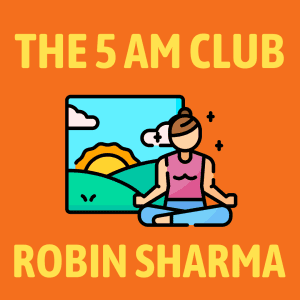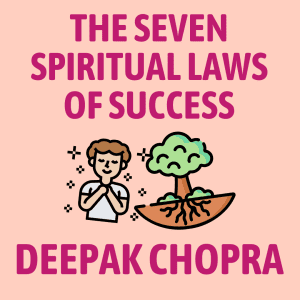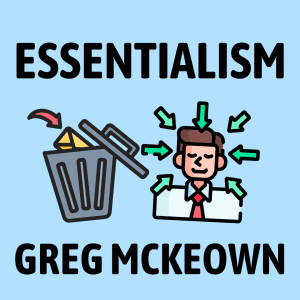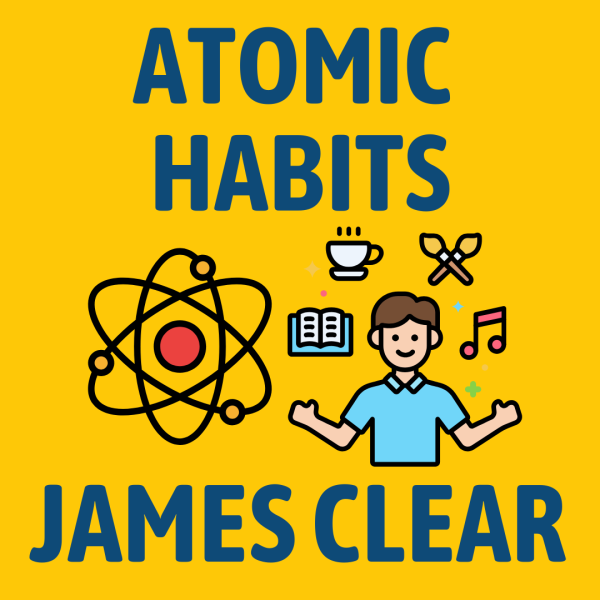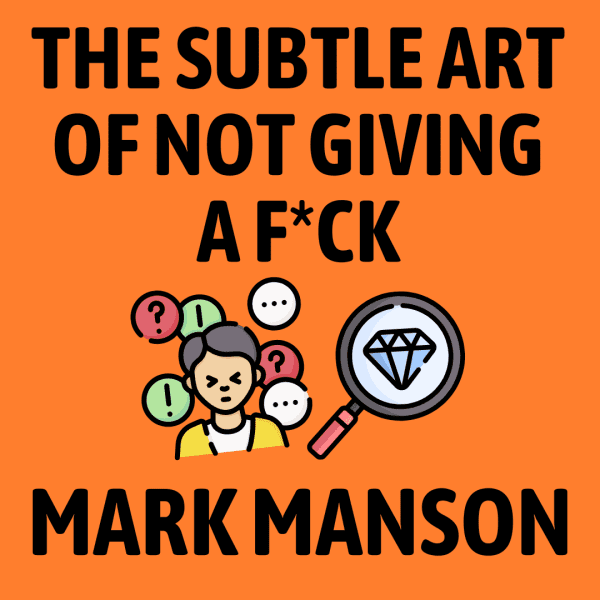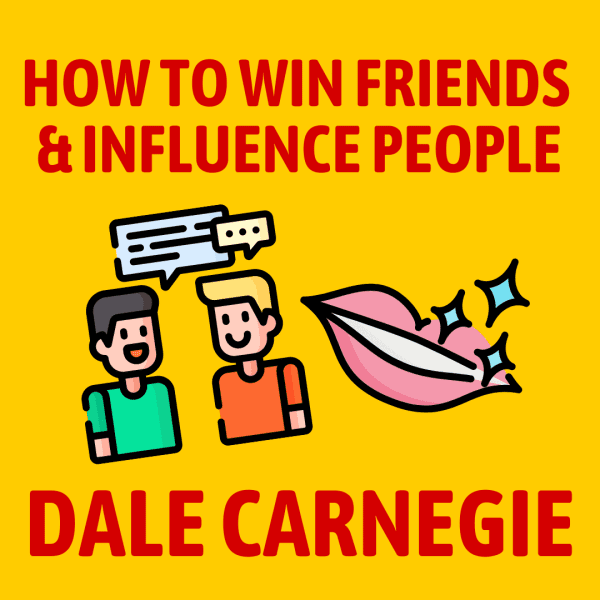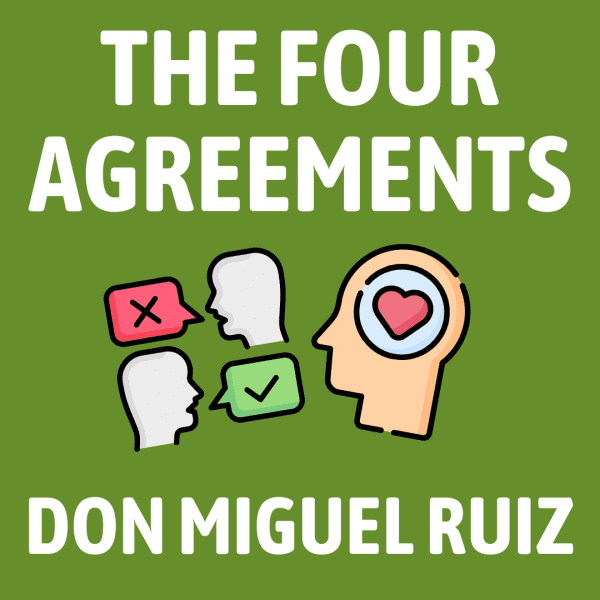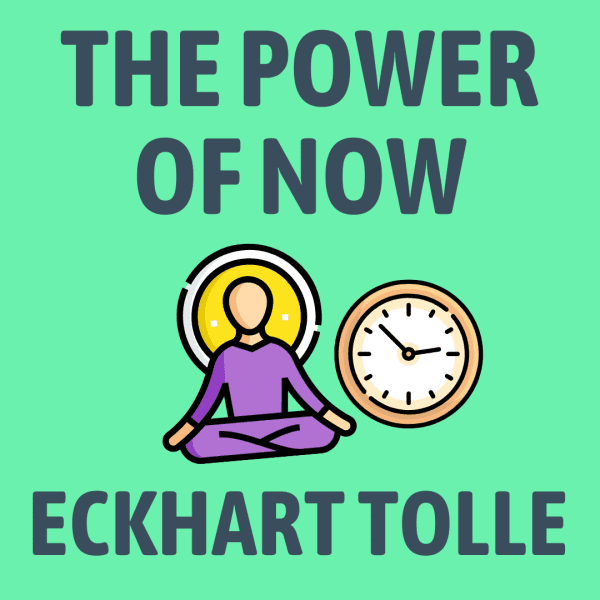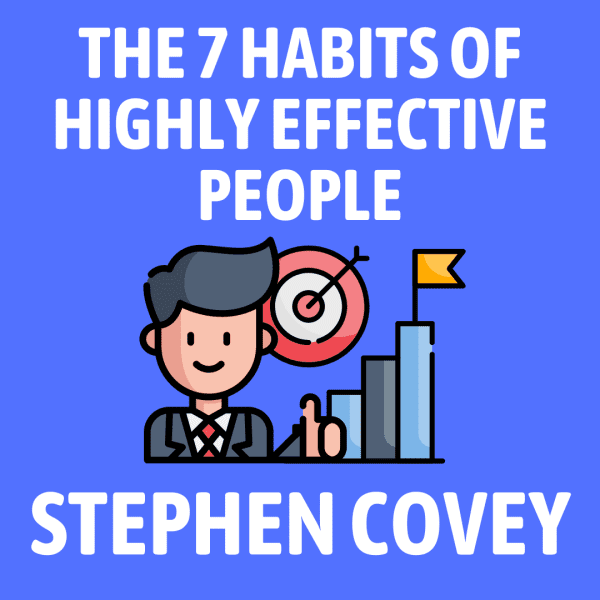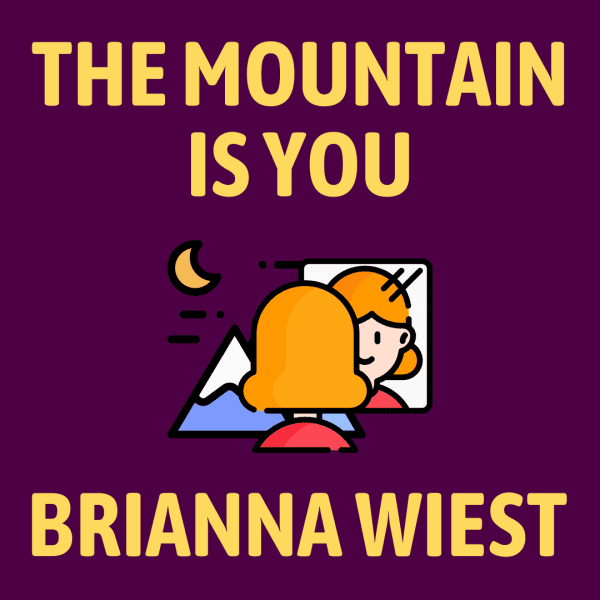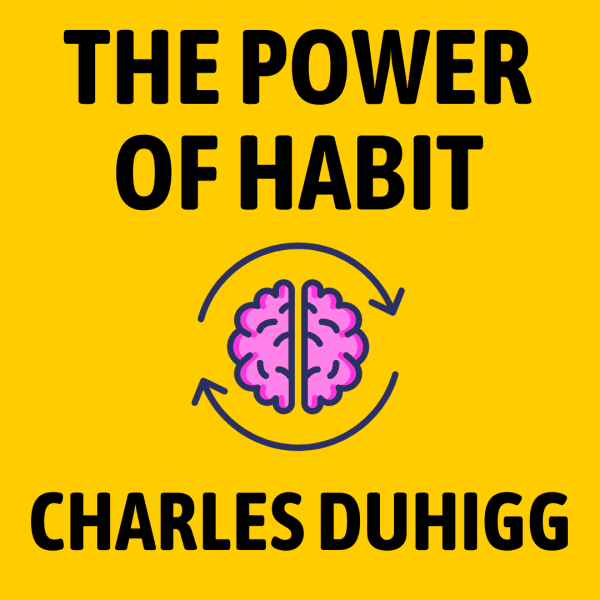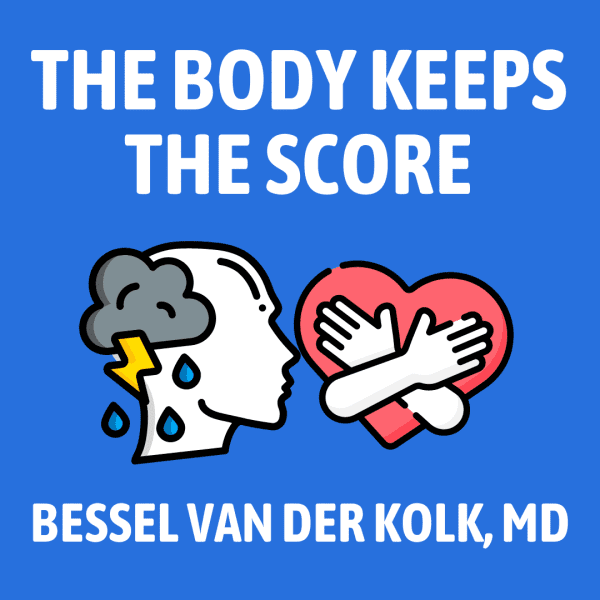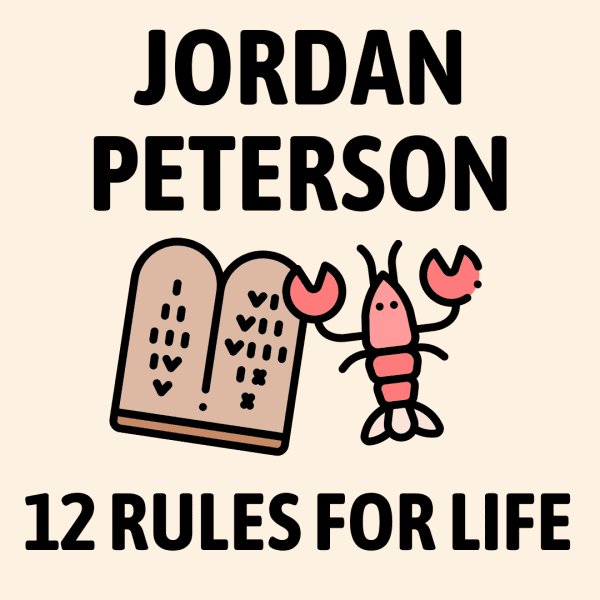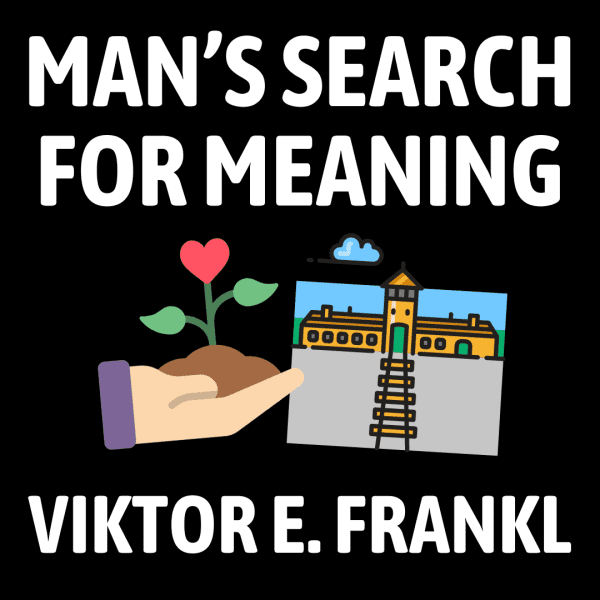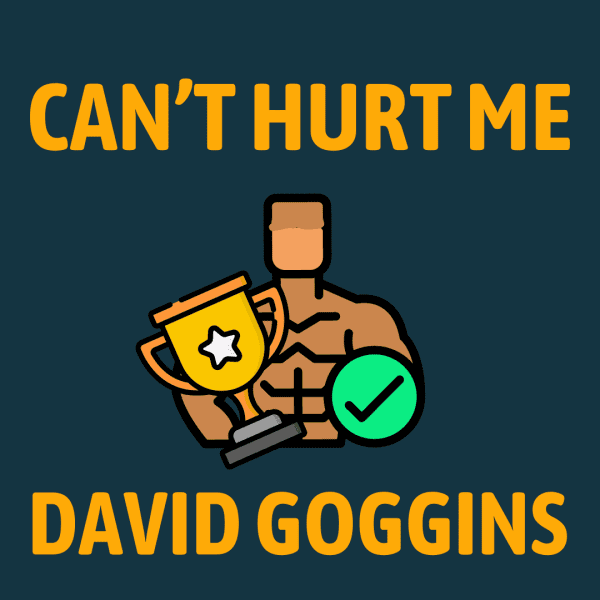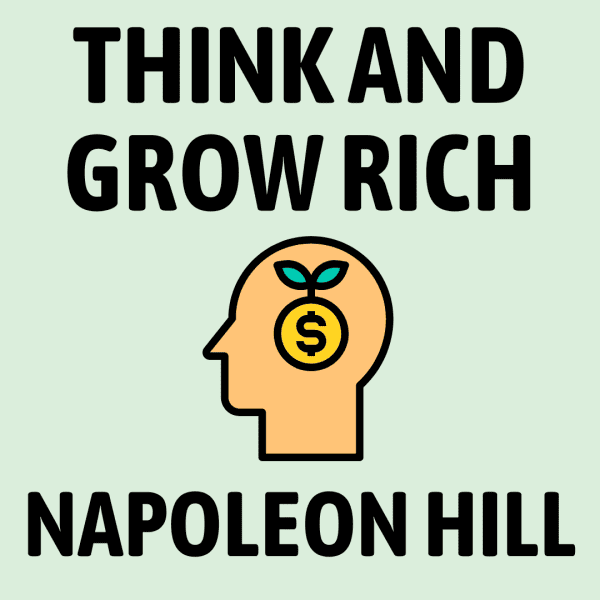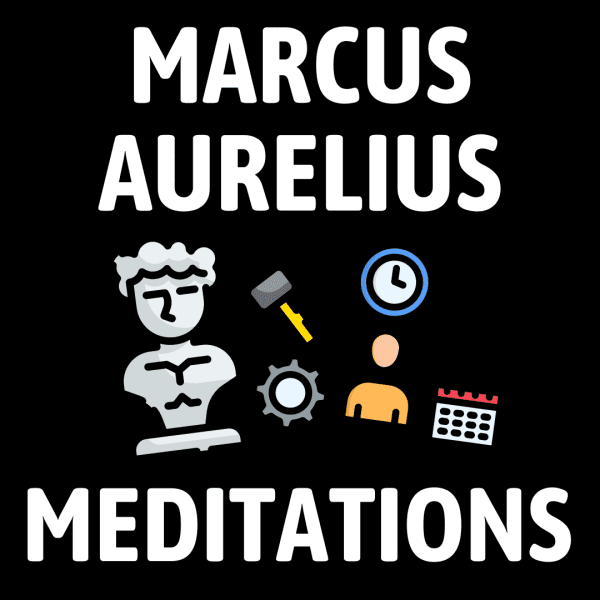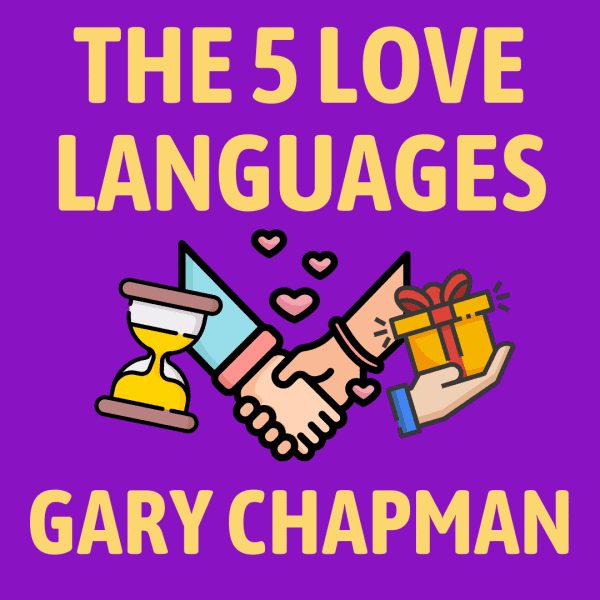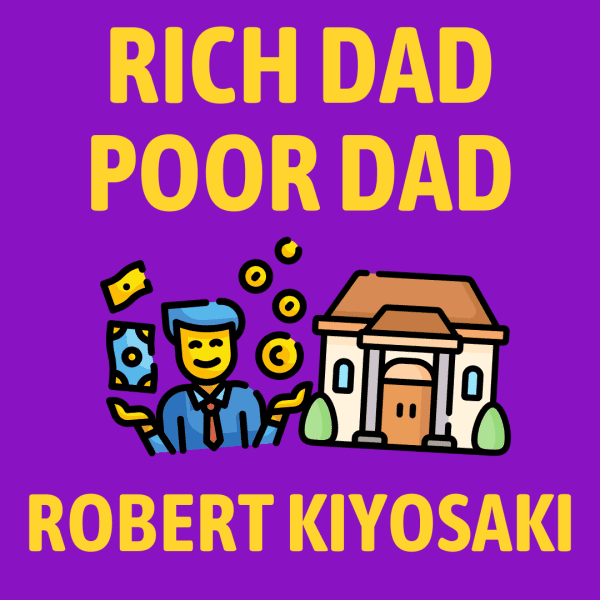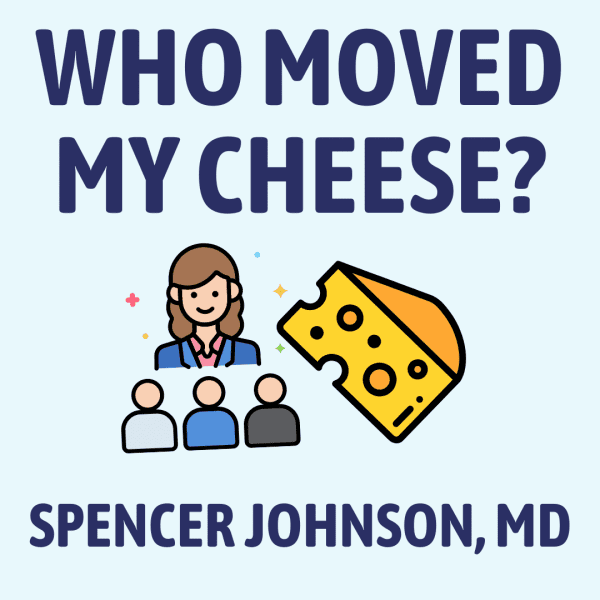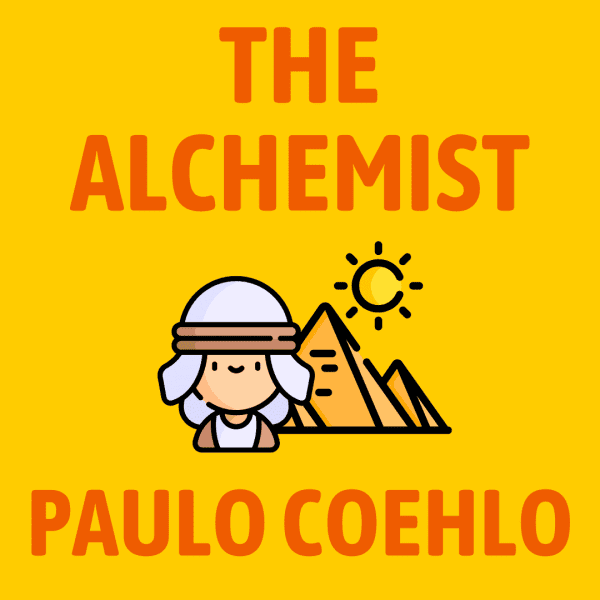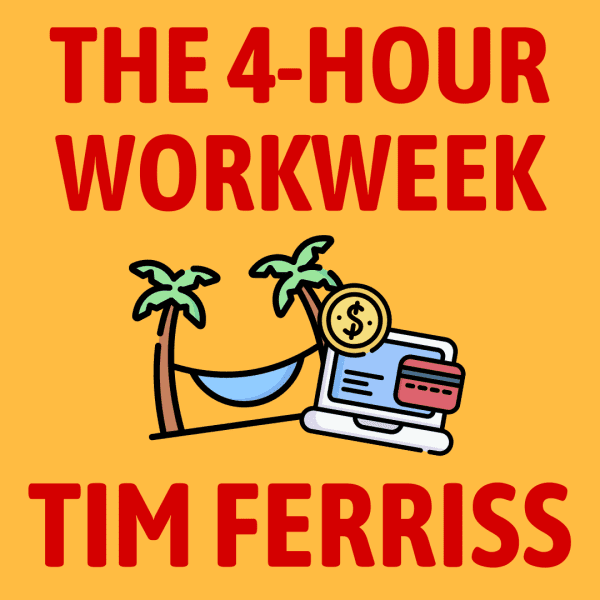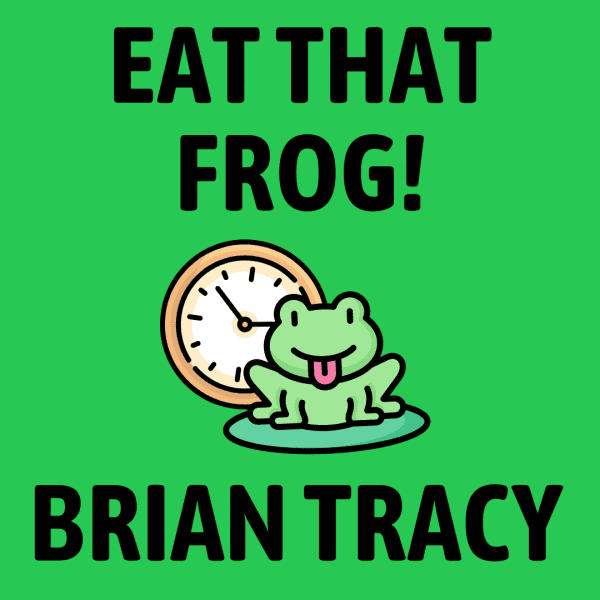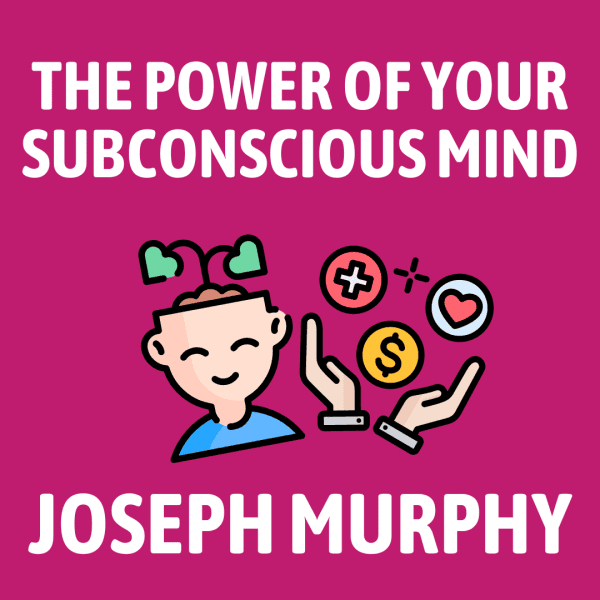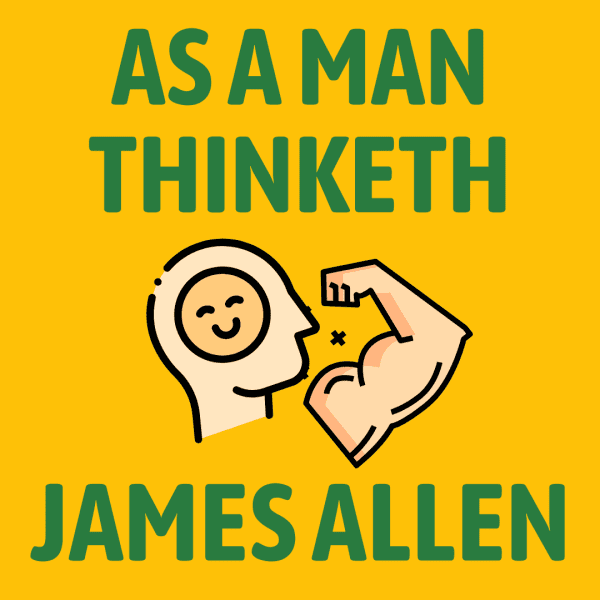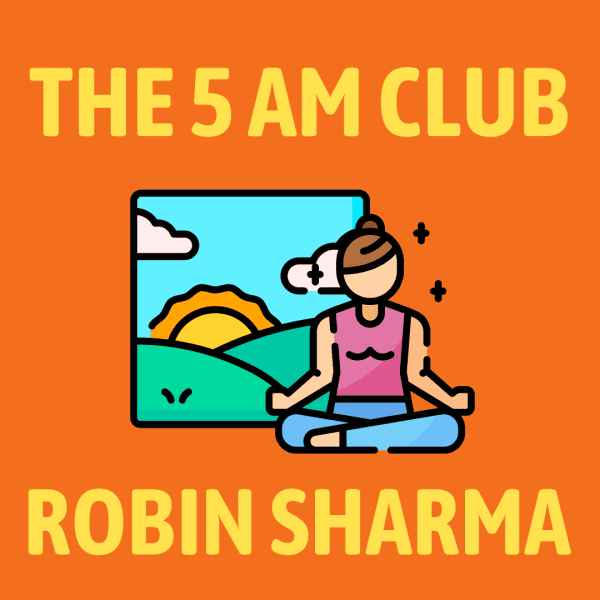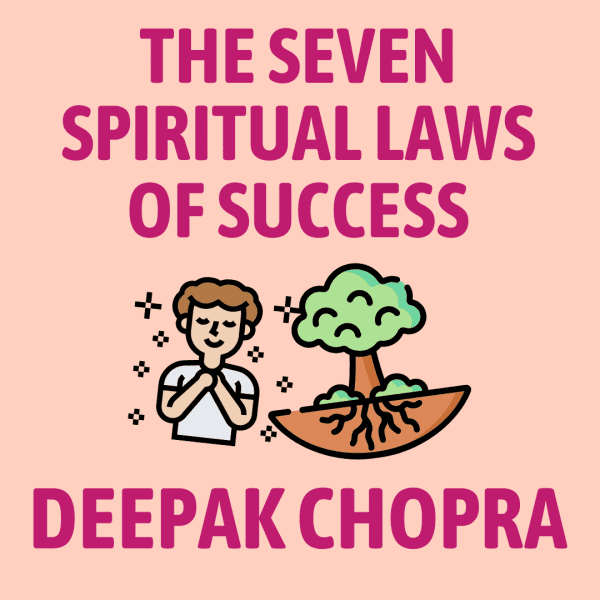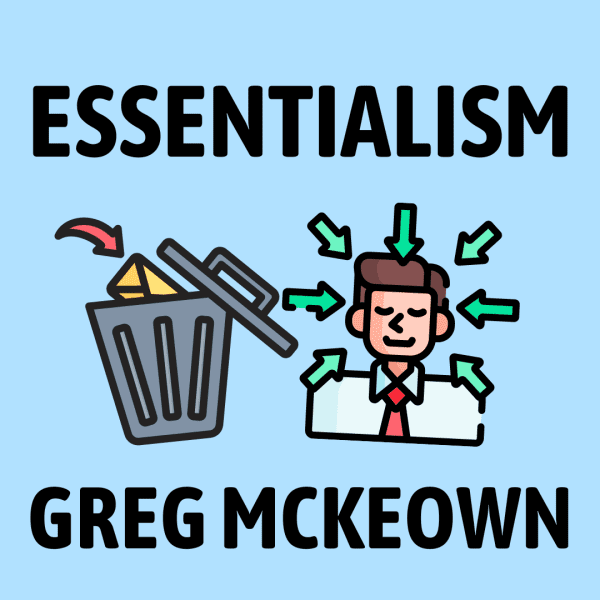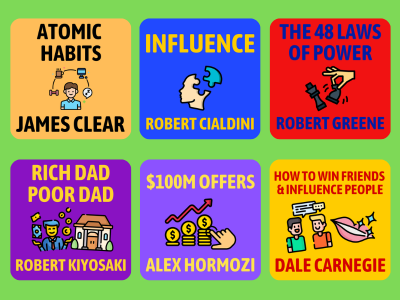Atomic Habits is about how tiny, consistent changes in behavior—atomic habits—can lead to remarkable results over time.
James Clear breaks down the science of habit formation and gives a clear, actionable 4-step system for building good habits and breaking bad ones.
Instead of focusing on goals, he emphasizes systems, identity change, and the power of compound growth.
Why read it?
If you’ve ever told yourself “This is the year I get my life together!” and then immediately binge-watched three seasons of a show you don’t even like… Atomic Habits is the book for you.
It’s not about grinding harder or becoming a productivity robot—it’s about sneaky, science-backed ways to trick your brain into becoming the kind of person who actually follows through.
The Subtle Art of Not Giving a F*** is like your smart but impolite friend explaining some great lessons from philosophy.
Mark Manson shows how to live by your values so you can act with less hesitation, do what's most important to you, and stop worrying what people think.
"How to Win Friends and Influence People" by Dale Carnegie is a timeless guide to influence, connection, and people skills.
Whether you're leading a team, selling a product, or just trying not to be awkward at parties—this book teaches how to make people like you, win them over, and change minds without creating conflict.
Why read it?
How to Win Friends and Influence People is a super practical guide for handling real-life situations with more confidence and less stress.
Through tons of vivid stories and examples, it shows you how to deal with things like disagreements, angry people, awkward conversations—you name it—without making things worse.
Whether you want to get along better at work, improve your relationships, or just be more persuasive in everyday life, this book gives you timeless tools that actually work.
The Four Agreements shows how to love yourself more, not take things personally, and heal your relationships.
Don Miguel Ruiz shares wisdom from the indigenous Mexican Toltec culture to help us stop living in this false "dream" of social rules, expectations and judgments.
The Power of Now is about living in the present moment so you suffer less and have more inner peace.
It's really about reconnecting to your physical senses rather than being lost in thinking.
Eckhart Tolle says past and future are only mental simulations because your life always happens Now.
The 7 Habits of Highly Effective People is about becoming more effective at reaching our goals and leading others.
Stephen Covey says his teachings are based on timeless principles like personal responsibility, empathetic listening, and treating others with fairness.
Why read it?
This book teaches 7 key principles that you can apply to almost any area of life, kind of like a Swiss Army knife for personal development.
Stephen Covey shifts focus from the surface-level pursuits of busyness and status to the character ethic - which says true success is about who we are, not just what we achieve.
After all, being busy isn't a personality trait, no matter how much we pretend it is on social media. 🤷♂️
The Mountain is You by Brianna Wiest is a guide to stop self-sabotage and build the life you want.
It shows how to change emotional habits blocking growth, let go of the past, imagine your future self, and separate good intuition from bad intrusive thoughts.
The Power of Habits by Charles Duhigg is a deep dive into the science of how habits work.
If you want to change your habits but don't know where to start, this book can help you.
It provides a simple 3-step formula called "The Habit Loop" to break bad habits and build better ones.
Why read it?
Charles Duhigg's book first popularized the habit loop - the idea that all our habits follow a cycle of "cue-routine-reward." More importantly, he gave practical ways we can "hack" the steps of this loop to take back control of our habits and our lives.
Before Atomic Habits, this was THE go-to book on habits and it is still well worth reading. (For psychology nerds, the habit loop was actually based on the psychologist B.F. Skinner's work that described a 3-step process of stimulus, response, and reinforcement.
Basically, his theory explains why your dog turns into a slobber machine the second you rustle their treat bag. 🐶
The Body Keeps the Score is about fascinating new trauma treatments based on the latest research, like eye movement therapy and neurofeedback.
Van der Kolk says many of us carry traces of trauma from childhood adversity or neglect.
Emotional healing can happen through practices like mindfulness, yoga, play and more.
12 Rules for Life is about putting your life in order and taking responsibility for what happens.
Jordan Peterson begins each chapter with a simple Rule like "Stand up straight" then he launches into thought provoking lessons from science, religion, history and psychology.
Deep Work is about focusing deeply so you can thrive in your professional career.
Cal Newport says reducing distractions and increasing our ability to concentrate will allow us to learn new skills faster and produce higher quality work.
Why read it?
In a world where the siren song of distractions is almost impossible to resist, Cal Newport's "Deep Work" emerges as the lighthouse guiding us back to productivity and meaningful work.
Newport champions the invaluable skill of deep work: the ability to focus without distraction on cognitively demanding tasks.
He teaches us that in the age of superficiality, the depth of your focus determines the depth of your success. 🏆
Man's Search for Meaning was written after Viktor Frankl survived the concentration camps of WW2.
He noticed that his fellow prisoners who could find purpose and meaning in their suffering found the strength to survive, while others perished.
This book is also a guide to finding meaning in your life.
Ikigai is about finding our life purpose and living longer, according to wisdom from Japan where people do live longer than average.
The key ideas include: doing activities that make us feel 'flow', nurturing enjoyable relationships, keeping busy after retirement, and daily light eating and exercise.
Why read it?
This book sends you on a heroic quest to uncover your life's secret mission—minus the tights and cape.
Your ultimate purpose is *spoiler alert* probably not binge-watching the latest series, but finding that sweet spot where your passion, mission, and other people's needs intersect.
Sounds intimidating?
You don't need to cure cancer.
It's just about finding a reason to jump out of bed in the morning, even if it's about feeling joy in the little things with a community you belong to. 🕺
Can't Hurt Me is a guide to building mental toughness, and it's also the motivational life story of David Goggins.
When he was young David survived abuse and racism, but later he transformed himself into a Navy SEAL, ultramarathon runner, and world record holder.
Thinking, Fast and Slow explains how people make decisions using two mental systems: "fast" thinking is instinctive and emotional, while "slow" thinking is deliberate and logical.
Daniel Kahneman helps us understand our when our mind fall into common biases and irrational shortcuts, so we can make better decisions in the future.
Think and Grow Rich is about more than money—it's about getting what we want in life.
Napoleon Hill interviewed 500+ successful people (like Henry Ford and Thomas Edison), identifying a 13-step formula for achievement, which includes 1) a burning desire, 2) a definite plan, and 3) persistence past failure.
Why read it?
Okay, this book may seem a bit 'out there' to some people because of its focus on using imagination and positive thinking to top into the mystical law of attraction.
Some people will love it and others will think it's straight up bonkers.
This isn't your cut-and-dry financial planning book.
So, if you're looking for straightforward budgeting tips, this might not be your cup of tea.
But hey, who knows?
Maybe your good vibes will help you attract the perfect accountant into your life...
Meditations by Marcus Aurelius is a classic of Stoic philosophy and shows us how to become more self-disciplined, stop caring what people think, and control our emotions.
The author was a powerful Roman Emperor about 2,000 years ago and wrote down these ideas in a private journal to himself.
"The 5 Love Languages" by Gary Chapman explains that people show and feel love in five main ways: Words of Affirmation, Acts of Service, Receiving Gifts, Quality Time, and Physical Touch.
By figuring out which of these love languages matter most to you and your partner, you can enrich your marriage or relationship by showing love in the way that makes each other feel most appreciated and loved.
Why read it?
Ever wondered why your big romantic gestures don't always hit the mark?
This book could be the Rosetta Stone you need for deciphering the language of love.
Chapman's insight into how people give and receive love using 5 different "languages" can transform relationships, helping you understand your loved ones better.
"Rich Dad Poor Dad" by Robert Kiyosaki shares financial secrets that rich people teach their kids about money, investing, and building wealth.
You'll learn how to make money work for you in smart ways, like by investing and owning businesses.
This approach is contrasted to the more traditional path of relying on a job and paycheck.
Why read it?
This book shows you why making money isn't just about getting a paycheck—it's also about finding smart ways to make your money work for you.
Why is this book so popular?
Because financial concepts are usually pretty boring, but Kiyosaki makes financial literacy fun by illustrating important ideas with stories from his childhood.
Who Moved My Cheese? is a fable about dealing with life's never-ending change.
Spencer Johnson describes four small characters living in a maze.
One day, their cheese suddenly disappears.
They can either resist the change and suffer, or learn to embrace it and move onto something better.
The Alchemist by Paulo Coelho is a simple yet profound story about a shepherd boy named Santiago who follows his dreams, going on a journey to find treasure in Egypt.
Along the way, he finds love, danger, and wisdom.
The book inspires readers to listen to their hearts, risk adventure, and seek life's meaning.
The 4-Hour Workweek is about building a passive income business so we can escape the usual 40-hour workweek, and design our ideal lifestyle.
Tim Ferris also shows how we can improve our productivity by following the 80/20 rule and a 'low information diet.'
Why read it?
This book is practically the bible of the "digital nomad" movement, where some people figured out how to work from their laptop anywhere in the world.
To most people it sounds like a complete fantasy: Imagine traveling the world, indulging your curiosity, all while your business runs itself.
But Tim Ferriss shares many inspirational case studies of people who have done it successfully.
It's kind of like finding out that unicorns are real—and they know how to code websites!
This book has opened the eyes of countless people that a radically different, unconventional type of lifestyle is possible.
"Eat That Frog!" by Brian Tracy is a guide to stop procrastinating, increase productivity, and master time management.
It teaches you to tackle the hardest tasks first, helping you get more done and make each day more focused and productive.
The Power of Your Subconscious Mind explains how to change our thinking through "scientific prayer," so we can change the outer conditions of our life to enjoy more prosperity, health, and happiness.
Joseph Murphy's techniques include affirmations, visualization, gratitude, faith, and surrender.
As a Man Thinketh says our thoughts set the course our life, not our circumstances.
James Allen says thoughts are seeds for actions, so our mind is a garden where we must cultivate the right seeds.
This short, inspiring book still influences many modern self-help teachers.
The 5AM Club is about learning to wake up at 5 a.m. and follow a morning routine, so we can become more self-disciplined, productive, and happy.
Robin Sharma wrote this self-help book as a story, with a Billionaire mentoring an Entrepreneur and Artist, who were struggling with distraction and procrastination.
The Seven Spiritual Laws of Success is about reaching our dreams with ease, through following wisdom from both ancient religions and modern spiritual teachers.
Deepak Chopra says we can attain much more than just material success, if we follow practices like silence, non-judgment, giving, intention and detachment.
Essentialism by Greg McKeown is a productivity book that helps you get more done by doing less.
It teaches you to focus only on what’s really important and say no to things that distract you.
Instead of feeling overwhelmed by too many tasks, you'll learn how to prioritize and concentrate on what truly matters in your life and work.

